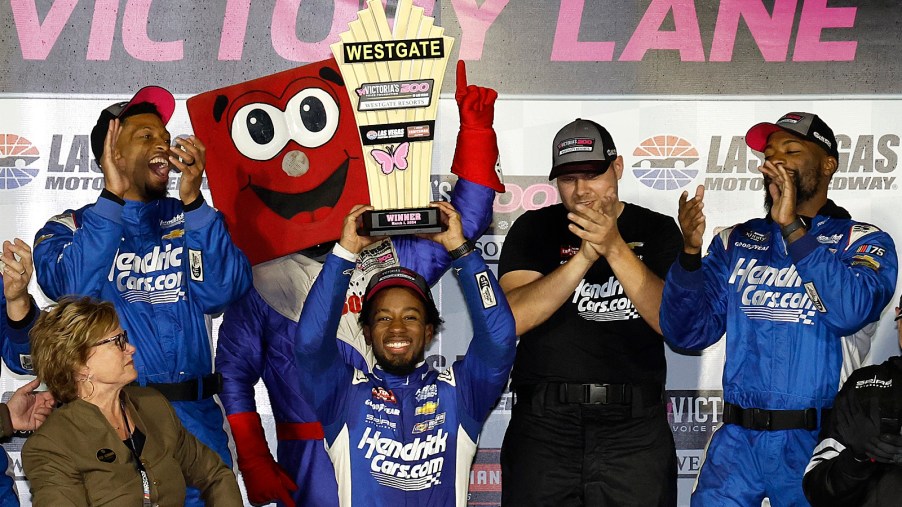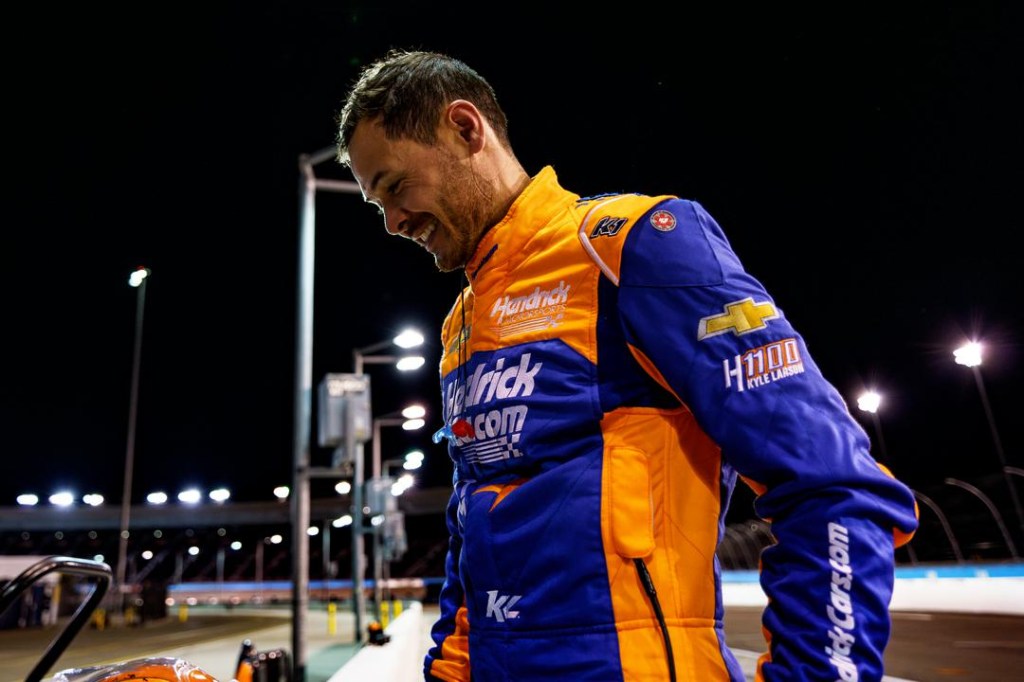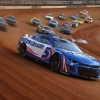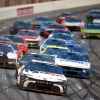
Start of the 2024 NASCAR Season Tough for Those Who Feel Sport’s Gone ‘Woke’
NASCAR began its Drive for Diversity program in 2004. The development program, for both prospective drivers and crew members, aims to cultivate inclusivity and garner more women and people of color within the white, male-dominated sport. And it must be a big thorn in the side of those who feel it’s an instance of NASCAR “going woke.” That’s because the first nine races of the 2024 NASCAR season’s top three divisions show the program is a success.
One-third of 2024 NASCAR Cup, Xfinity and Truck Series races so far this year include Driver for Diversity (D4D) graduate winners. Monterrey, Mexico, native Daniel Suarez won the Atlanta Cup race in an instant classic — highlighted by a three-wide race to the checkers and a 0.003-second margin of victory, the third closest in NASCAR history. Truck Series driver Rajah Caruth became just the third Black driver to win in NASCAR’s top three divisions — joining Bubba Wallace and Wendell Scott — with his win Friday in the Truck Series. Kyle Larson won the Cup race at Las Vegas Sunday. The former Cup champion is of Japanese American heritage.
This must irk those that feel the Drive for Diversity program gives competitors an unfair advantage in NASCAR.
Last year, American First Legal filed a civil rights complaint against NASCAR and Rev Racing, Drive for Diversity’s competitive wing. The letter lodged the Drive for Diversity program includes “unlawful employment practices.” It called for a commission to investigate the “ongoing, deliberate, and illegal discrimination against white, male Americans.”
American First Legal, unsurprisingly, is a conservative organization that touts it is “turning the legal tables on the radical activist left.”
It’s easy to scoff at the suggestion NASCAR, of all organizations, is oppressing white, male Americans. And this suggestion — that Drive for Diversity is giving some drivers unfair opportunities — seems to overlook just how much of the NASCAR field is filled with competitors who have a leg up on the competition by who they are. Take a quick look at current Cup Series drivers and it’ll quickly reveal just how many have had far easier inroads into the sport.
Austin Dillon is the grandson of team owner Richard Childress. Cody Ware is the son of Rick Ware, team owner of Rick Ware Racing. Corey LaJoie, Ryan Blaney, Chase Elliott, Harrison Burton, John Hunter Nemechek and Todd Gilliland are all sons of former Cup Series competitors. In some cases, former champions of the sport. Not to discredit the efforts of these drivers, but it certainly helps ease your entry into the sport when your family name is already known in NASCAR circles and you’re the prodigy of a veteran of the sport. Would Dale Earnhardt Jr., Kyle Petty, Dale Jarrett or Davey Allison have had the same opportunities for success had their surnames been different?

I don’t believe Drive for Diversity is an instance of NASCAR being “woke” or giving preferential treatment based on race or gender. It is a launching pad for those not well represented in the sport. That leads to growth. Which is what NASCAR wants, after all. It’s what many fans want, too.
Some will have an easier time being successful in NASCAR because of who they are or who they know. It makes the sport like, well, every industry. D4D is hardly a guarantee of success. The careers of Larson, Caruth, Suarez and Bubba Wallace are the exception, not the rule. These drivers are successful now because they have the talent, ambition and the equipment to succeed.
“The D4D program was good for my career,” Larson said after winning Sunday at Las Vegas. “Kind of gave me my introduction into stock car racing and gained a lot of experience not only on the racetrack but off of it, as well, with everything that they offered there at Rev Racing when I was there. I’m sure it’s changed quite a bit since 2012, but regardless, they’ve produced some great drivers, and it’s cool to see.”



